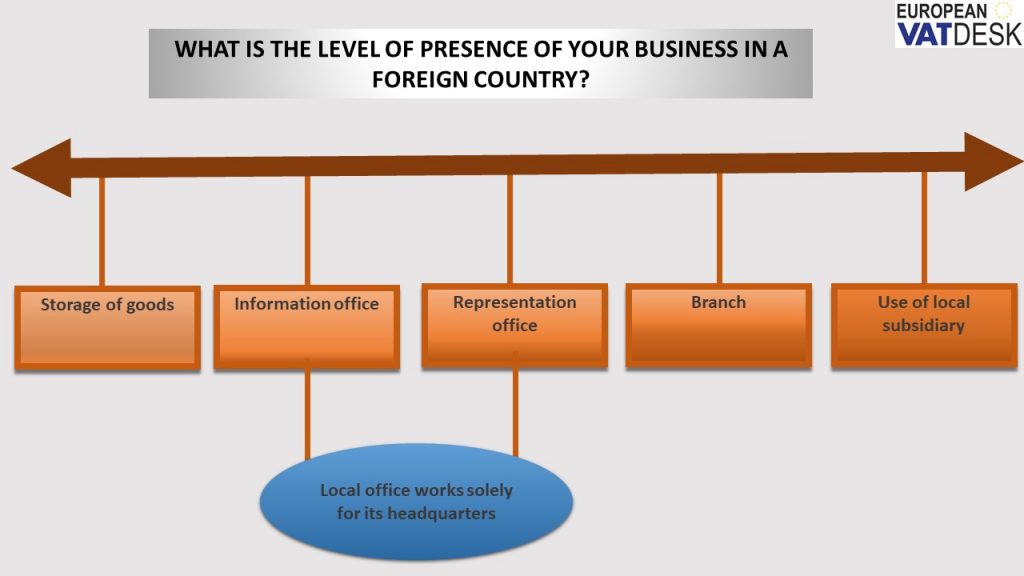Summary
There are many ways in which your business can expand abroad:
- You rent a storage space to store and deliver your goods;
- You open an information office there, which will be responsible for prospecting the local market via sales representatives (employees or self-employed);
- You open a representative office which will be in charge of operations that are ancillary or auxiliary to your main activity;
- You open a branch with your own staff and a fixed business facility (office, factory, workshop, etc.);
- You use the human and material resources of your local subsidiary.
Will your presence abroad be minimal or, on the contrary, will it require significant material and human resources?
The answer to this question is paramount because it will enable you to determine whether or not your business has a permanent establishment for VAT purposes.
The concept of permanent establishment for VAT purposes
Do not confuse the notion of permanent establishment for VAT purposes with that defined in Article 5 of the Model Tax Convention for income tax purposes, as this error could cost you a lot of money: a company may have a permanent establishment for income tax purposes but not for VAT purposes or vice versa.
For VAT point of view, it is an establishment with a sufficient degree of permanence and an adequate structure in terms of human and technical resources (office, computer, etc.). A minimum consistency is therefore required.
Based on this definition, the VAT Directive defines two main categories of permanent establishment:
- Beneficiary permanent establishment: these are establishments which are capable of receiving and materially using services;
- The permanent establishment providing services: these are establishments which are capable of providing the services. This is the case when the permanent establishment is involved in the provision of the said service.
What are the VAT implications of a permanent establishment?
The VAT issues raised by the presence of a permanent establishment abroad can be summarised in the following three questions:
- How should internal transactions between the parent company and its permanent establishment be treated? What about cost reallocation? What about transfer pricing adjustments?
- Who, from the head office or permanent establishment, should charge the end customer? Should this invoice be issued with or without local VAT?
- Are services (consultants, legal services, IT services, etc.) and goods (goods, equipment, etc.) purchased from third parties to be invoiced to the head office or to the permanent establishment? What are the procedures for refunding local VAT?

To keep in mind
The concept of permanent establishment for VAT purposes is defined by the VAT Directive and interpreted by EU case law...but also by local tax authorities. And the latter sometimes have a rather broad view of this notion.The answer is not simple. Many companies find themselves in a "grey zone", which is generally a source of conflict with the local tax authorities. And no European country is spared, as evidenced by the growing number of court cases on the subject regularly ending up before the European Court of Justice.
Contact us
Any VAT question ?
We offer you the opportunity to discuss the subject during a free videoconference.
